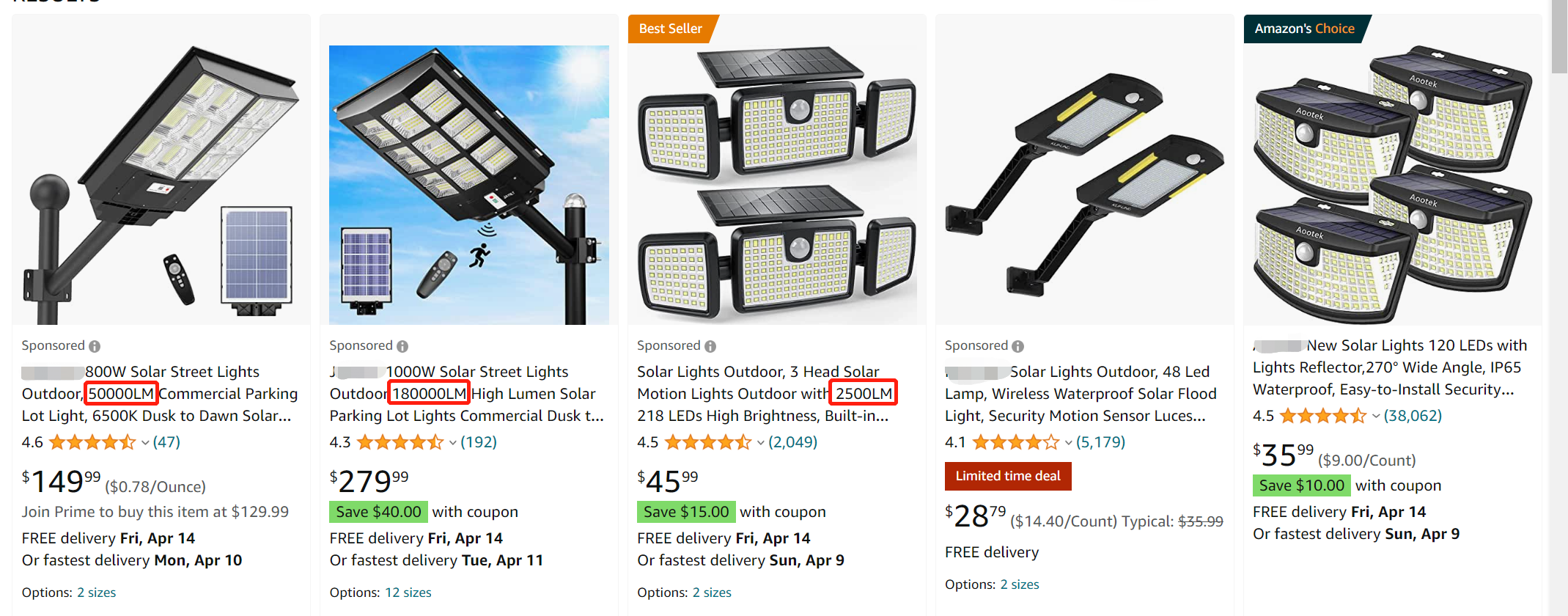I have something to say about lumens for solar lights
There are often some customers who ask me about solar lights, and I am happy to ask them about specific requirements and budgets, but when the customer asks, he often sees that they can be bought for 100 dollars or even tens of dollars on Amazon, ebay or other websites. When the so-called solar lights are 30000LM, 50000LM or even higher, I always show a very exaggerated expression and patiently explain to the customer.
Some solar light merchants label lumens indiscriminately because they may use false or exaggerated claims to make their products appear brighter or more efficient than they actually are. Lumens are a measure of the amount of light emitted by a light source and are an important factor in determining how bright a light is. However, some manufacturers may use misleading labels to market their products, which can confuse consumers trying to compare the brightness of different lights.
The following is my analysis of the reasons for the chaos in the solar lamp industry:
Lack of industry standards: At present, there is no uniform standard for the brightness labeling of solar lights. This means merchants can use different methods to measure and label lumens, which can create inconsistency and confusion for consumers.
Market competition: There are so many solar street lights on the market, some manufacturers may use false advertisements to make their products stand out. By labeling their lights with higher lumens than they actually emit, they can attract customers who are looking for brighter lights.
Buyers lack of understanding: Most buyers don’t actually understand lumens, light effects and other professional knowledge. They just think that I can spend less money to get better products. However, many merchants just grasp the psychology of customers Misleading customers to choose a wrong product.
Cost-cutting measures: In order to reduce costs, some manufacturers may use lower quality components in their solar lights. This may result in lower overall brightness, but they may still be mislabeling lumens in an attempt to make their product more competitive in the market.
Consumer demand: Some consumers may prefer to purchase solar lights labeled with higher lumens, even if the actual brightness of the light is not as claimed. This can create demand for mislabeled lamps, which manufacturers may satisfy by labeling their products with higher lumens.
Overall, it is important to be cautious when purchasing solar lights and to do your research before making a decision. By checking independent reviews, considering all factors that affect performance, and avoiding products with hype, you can find a high-quality solar light that meets your needs.
In addition, when making a purchase decision, it is important to consider other factors, such as the power of the solar panel, the capacity of the battery, and the service life of the lamp. In short, it is not easy to choose a suitable lamp. Confirm the key information with the seller before, so that you can avoid unnecessary losses.

